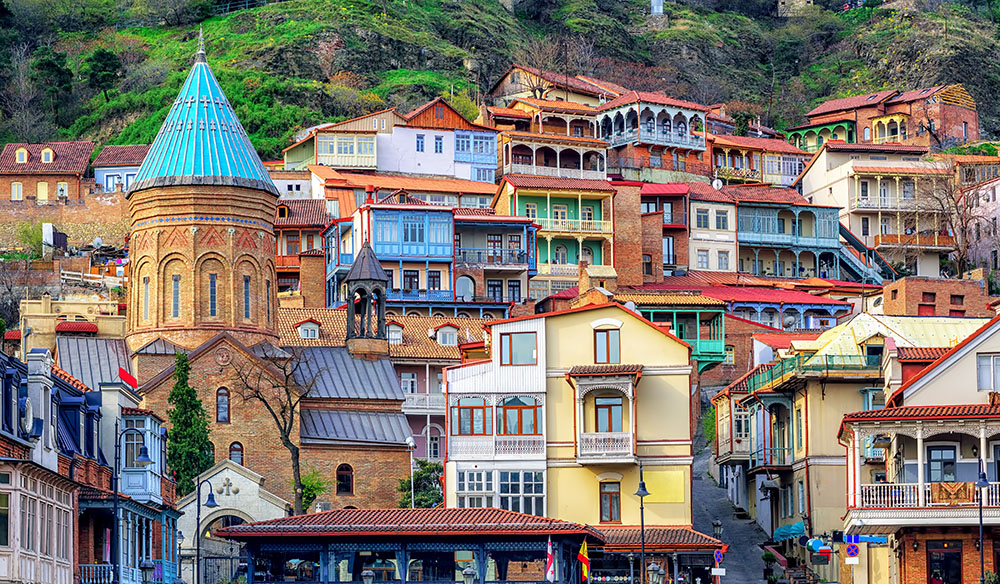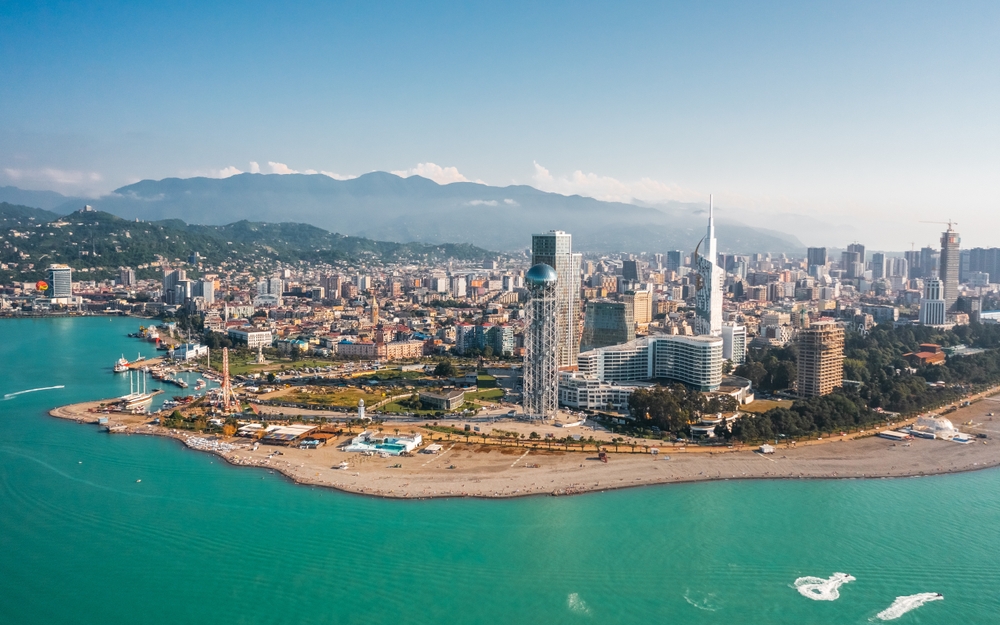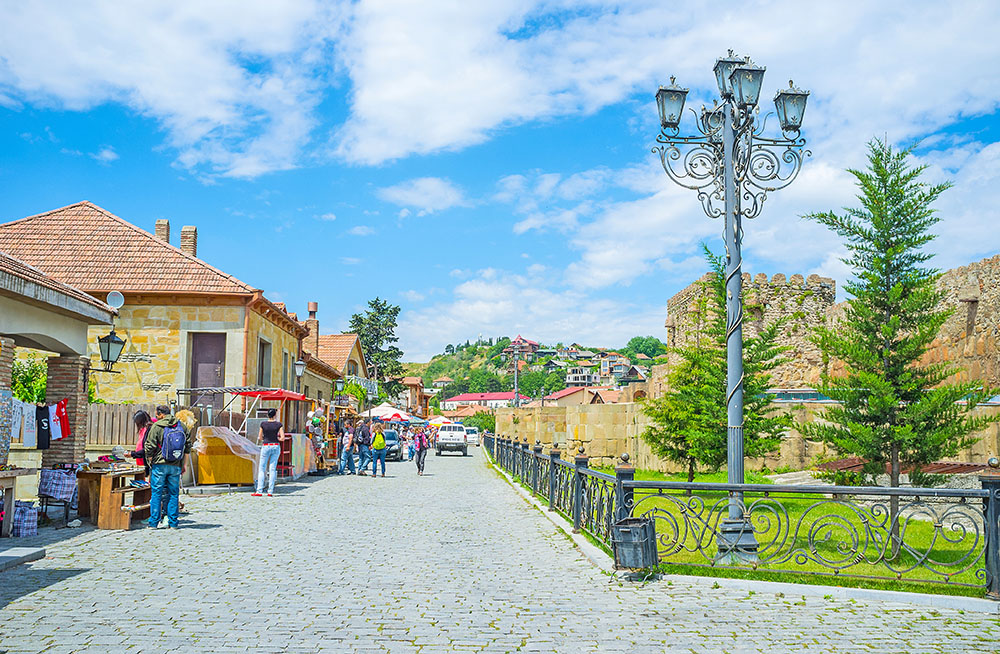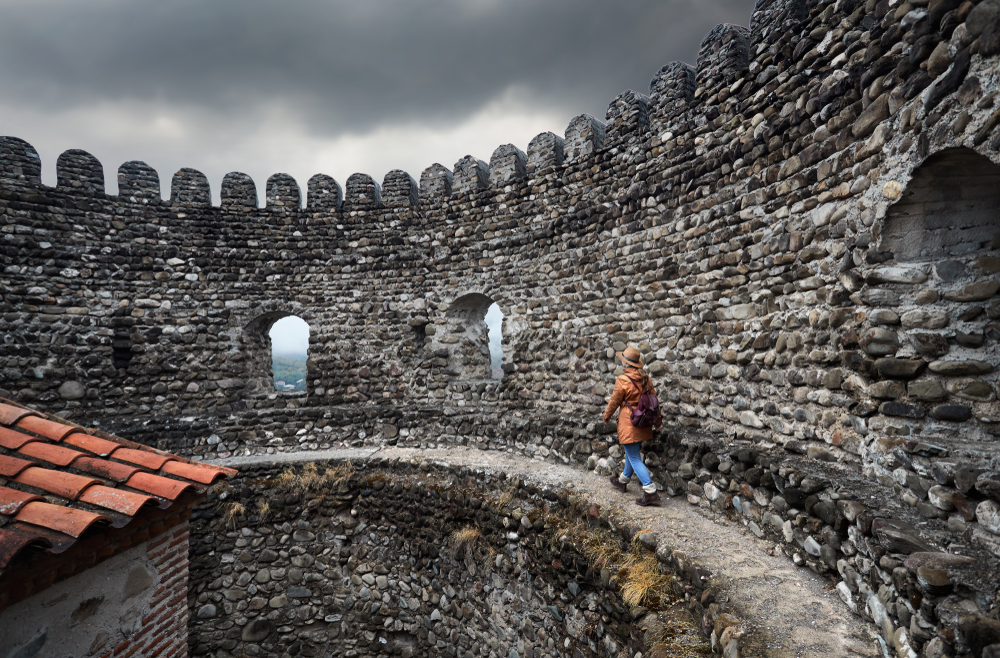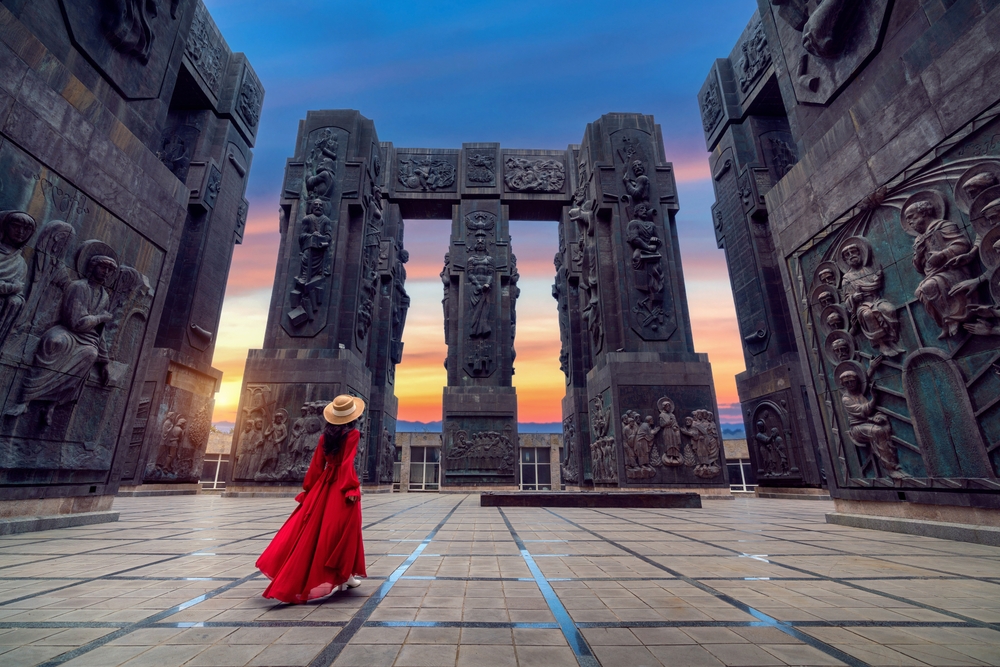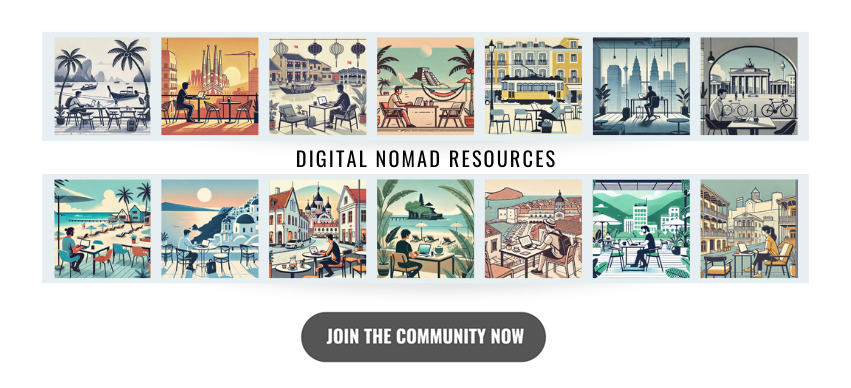Georgia has emerged as one of Europe’s most attractive hidden gems for digital nomads, offering an unbeatable combination of visa-free entry for most nationalities, extremely affordable living costs, stunning mountain and coastal landscapes, and a unique culture at the crossroads of Europe and Asia. From the cobblestone streets of Old Tbilisi to the Black Sea beaches of Batumi, Georgia provides diverse environments for location-independent professionals seeking exceptional value and authentic experiences.
Quick Answer: Georgia offers digital nomads visa-free entry for up to 365 days for most nationalities, monthly living costs starting around $600-800, rapidly improving internet infrastructure, and a unique cultural experience combining European and Asian influences. The country has become increasingly popular due to its affordability, safety, and the famous Georgian hospitality.
Table of Contents
- Georgia’s Visa Options for Digital Nomads
- Why Choose Georgia for Remote Work
- Top Cities for Digital Nomads
- Living Costs and Budgeting
- Internet and Infrastructure
- Practical Considerations
- Legal and Tax Information
- Healthcare and Safety
- Cultural Integration
- Challenges to Consider
- Frequently Asked Questions
- Conclusion
Georgia’s Visa Options for Digital Nomads
Visa-Free Entry: Georgia’s Biggest Advantage
Georgia’s Liberal Visa Policy
Georgia offers one of the world’s most generous visa policies, making it exceptionally accessible for digital nomads.
Key Details of Georgia’s Visa-Free Entry:
- Duration: 365 days (1 full year) for most nationalities
- Eligible Countries: 95+ countries including US, EU, Canada, Australia, Japan
- Requirements: Valid passport with 6+ months remaining
- Work Authorization: Remote work for foreign companies permitted
- Extensions: Leave and re-enter to reset the 365-day period
- Processing: Immediate upon arrival at border
- Cost: Free
- Multiple Entries: Unlimited entries and exits during valid period
Covered Nationalities (365 days):
- All EU countries
- United States and Canada
- Australia and New Zealand
- Japan and South Korea
- Many others (check official list)
Small Business Status (Tax Benefits)
Georgia’s Unique Tax Program for Entrepreneurs
For digital nomads earning income in Georgia or planning to establish local presence:
Small Business Status Details:
- Tax Rate: 1% on turnover up to 30,000 GEL ($11,200) annually
- Eligibility: Foreign nationals can apply
- Benefits: Extremely low tax burden for small-scale operations
- Requirements: Register business activities in Georgia
- Suitable For: Freelancers, consultants, small service providers
Investor Visa
For Higher-Investment Digital Nomads
Investor Visa Requirements:
- Investment: $300,000 in Georgian business or real estate
- Duration: Renewable residency leading to citizenship eligibility
- Benefits: Full residency rights and business opportunities
- Target: High-net-worth individuals or serious investors
How Does Georgia Compare to Other Visa-Free Destinations?
|
Country |
Visa-Free Duration |
Income Tax |
Cost of Living |
Entry Requirements |
|
Georgia |
365 days |
1% (Small Business) |
$600-1,200/month |
Passport only |
|
Dubai (UAE) |
90 days |
0% |
$2,000-4,000/month |
Passport only |
|
Malaysia |
90 days |
Variable |
$800-1,500/month |
Passport only |
|
Mexico |
180 days |
Variable |
$1,000-2,000/month |
Passport only |
|
Serbia |
90 days |
Variable |
$800-1,500/month |
Passport only |
Georgia offers the longest visa-free period combined with the lowest costs and most favorable tax treatment.
Why Choose Georgia for Remote Work
What Makes Georgia Special for Remote Workers?
Georgia offers unique advantages that have made it increasingly popular among savvy digital nomads seeking exceptional value and authentic experiences.
Financial Advantages
- Extremely low cost of living (among the lowest in Europe/Western Asia)
- Favorable tax environment with Small Business Status
- Affordable healthcare and transportation
- Strong Georgian Lari provides good value for foreign currencies
- No restrictions on foreign currency accounts
Cultural and Geographic Benefits
- Unique position at the crossroads of Europe and Asia
- Rich history dating back thousands of years
- Stunning natural diversity from Caucasus Mountains to Black Sea coast
- Famous Georgian hospitality and welcoming culture
- Ancient wine culture (8,000+ year tradition)
- UNESCO World Heritage sites
Infrastructure and Connectivity
- Rapidly improving internet infrastructure
- Modern telecommunications systems
- Excellent road networks connecting major cities
- Two international airports (Tbilisi and Batumi)
- Growing expat and digital nomad communities
Quality of Life Factors
- Very low crime rates and high safety levels
- Clean mountain air and natural environments
- Thermal springs and wellness opportunities
- Outdoor activities: hiking, skiing, wine tourism
- Rich culinary traditions with healthy Mediterranean-style diet
Top Cities for Digital Nomads
Tbilisi: The Historic Capital
Why Choose Tbilisi for Remote Work?
Georgia’s capital combines ancient history with modern amenities, offering the country’s best infrastructure for digital nomads.
Digital Infrastructure in Tbilisi
- Fiber internet widely available (50-200 Mbps in city center)
- Growing coworking scene with spaces like Terminal, Impact Hub, and Fabrika
- Day passes: $8-15
- Monthly memberships: $80-150
- Numerous cafes with reliable WiFi
Living Costs in Tbilisi
- Budget lifestyle: $600-900/month
- Comfortable lifestyle: $1,000-1,500/month
- Luxury lifestyle: $1,800+/month
Best Neighborhoods for Digital Nomads
- Old Town (Dzveli Tbilisi): Historic charm with cobblestone streets
- Rustaveli Avenue: Central location with cultural attractions
- Vake: Upscale residential area with parks
- Saburtalo: Modern district with shopping and amenities
- Sololaki: Trendy area with galleries and cafes
Pros and Cons of Tbilisi ✅ Pros:
- Best internet infrastructure in Georgia
- Richest cultural scene with museums and theaters
- Most international food options
- Best public transportation
- Largest expat community
❌ Cons:
- More expensive than other Georgian cities
- Air pollution in winter months
- Traffic congestion during peak hours
- Less nature access than coastal/mountain areas
Batumi: The Black Sea Resort
What Makes Batumi Special for Digital Nomads?
Georgia’s second-largest city offers a unique blend of seaside lifestyle, subtropical climate, and growing tourism infrastructure.
Digital Scene in Batumi
- Improving internet infrastructure with fiber coverage
- Several coworking spaces and cafes
- Growing international community
- Modern hotels with business facilities
Batumi Living Costs
- Budget lifestyle: $500-800/month
- Comfortable lifestyle: $800-1,200/month
- Luxury lifestyle: $1,500+/month
Benefits of Batumi for Remote Workers
- Beach lifestyle with Black Sea access
- Subtropical climate with mild winters
- Casino and entertainment district
- Modern architecture and development
- Gateway to Turkey (visa runs if needed)
- Lower costs than Tbilisi
Seasonal Considerations
- Summer (June-September): Peak tourist season, higher prices, hot weather
- Winter (December-March): Quieter, lower prices, mild but rainy weather
- Spring/Fall: Ideal weather and moderate prices
Kutaisi: The Affordable Alternative
Why Consider Kutaisi for Remote Work?
Georgia’s third-largest city offers exceptional affordability while maintaining good connectivity to other parts of the country.
Kutaisi Advantages
- Extremely low cost of living ($400-700/month comfortable)
- Historical significance as former capital
- Good internet infrastructure
- International airport with budget flights to Europe
- UNESCO World Heritage sites nearby
Kutaisi Living Costs
- Budget lifestyle: $350-500/month
- Comfortable lifestyle: $600-900/month
- Luxury lifestyle: $1,200+/month
Mtskheta: The Ancient Capital
Historical Charm for Digital Nomads
Georgia’s ancient capital offers a unique experience for nomads seeking tranquility and historical immersion.
Mtskheta Benefits
- UNESCO World Heritage site
- 30 minutes from Tbilisi
- Very affordable accommodation
- Peaceful environment for focused work
- Rich historical and religious significance
Signagi: The Wine Country Retreat
Romantic Hilltop Town Experience
Located in Georgia’s premier wine region, Signagi offers stunning views and authentic Georgian culture.
Signagi Advantages
- Breathtaking views of Alazani Valley
- Heart of Georgian wine country
- Extremely affordable living
- Peaceful, romantic atmosphere
- Growing guesthouse and restaurant scene
Living Costs and Budgeting
How Much Does It Cost to Live in Georgia as a Digital Nomad?
Monthly Budget Breakdown by City:
| Expense Category | Tbilisi | Batumi | Kutaisi | Mtskheta | Signagi |
| Accommodation | $300-800 | $250-600 | $150-400 | $100-300 | $80-250 |
| Food & Dining | $200-400 | $150-300 | $100-250 | $80-200 | $70-180 |
| Transportation | $20-50 | $15-40 | $10-30 | $15-35 | $10-25 |
| Utilities | $50-100 | $40-80 | $30-60 | $25-50 | $20-40 |
| Internet/Mobile | $15-30 | $15-30 | $15-25 | $15-25 | $15-25 |
| Entertainment | $100-300 | $80-200 | $50-150 | $30-100 | $25-80 |
| Healthcare | $30-80 | $25-60 | $20-50 | $15-40 | $15-35 |
| TOTAL | $715-1,840 | $575-1,310 | $375-965 | $280-750 | $235-635 |
All amounts in USD.
What Affects Living Costs in Georgia?
Accommodation Variables
- Location: City center vs. suburbs (20-40% price difference)
- Type: Apartment vs. guesthouse vs. hotel
- Amenities: Furnished vs. unfurnished, utilities included
- Season: Summer (higher) vs. winter (lower) in coastal areas
Food and Dining
- Local restaurants: $3-8 per meal
- International cuisine: $8-15 per meal
- Groceries: Very affordable, especially local products
- Wine: Exceptional quality at $3-10 per bottle
Transportation Costs
- Tbilisi metro: $0.20 per ride
- Marshrutka (minibus): $0.25-0.50 per ride
- Taxi: Starting from $2-3 in cities
- Car rental: $20-40/day
- Domestic flights: $50-100 between cities
Internet and Infrastructure
How Good is Georgia’s Internet for Remote Work?
Georgia has made significant improvements to its digital infrastructure, though quality varies by location.
Internet Speed by City
- Tbilisi: Average 50-200 Mbps (fiber widely available)
- Batumi: Average 30-100 Mbps (improving rapidly)
- Kutaisi: Average 25-80 Mbps
- Smaller towns: Average 10-50 Mbps
Major Internet Providers
- Silknet: Largest provider with extensive fiber network
- Akhali Kselebi (Caucasus Online): Good coverage in major cities
- Teleconiki: Competitive speeds and pricing
- Magti: Strong mobile and internet services
Mobile Internet Options
- 4G coverage: Extensive in urban areas, improving in rural regions
- Major operators: Geocell, Magti, Beeline
- Data plans: $5-15/month for substantial data allowances
- International roaming: Available but can be expensive
Backup Connectivity Solutions
- Coworking spaces: Guaranteed high-speed internet
- Hotels and guesthouses: Usually offer WiFi
- Public WiFi: Available in many cafes and public spaces
- Mobile hotspots: Reliable backup option
Practical Considerations
Banking and Finance in Georgia
Opening a Georgian Bank Account
- Requirements: Passport, proof of address, initial deposit
- Major banks: Bank of Georgia, TBC Bank, Liberty Bank
- Timeline: Usually same-day processing
- Benefits: Local cards, lower fees, easier bill payments
Payment Methods and Currency
- Currency: Georgian Lari (GEL), approximately 2.7 GEL = 1 USD
- Cards: Visa and Mastercard widely accepted in cities
- Cash culture: Still important, especially in smaller towns
- ATMs: Widely available in urban areas
- International transfers: Wise, Western Union available
Transportation in Georgia
Public Transportation
- Tbilisi metro: Modern, efficient subway system
- Marshrutka: Shared minibuses connecting cities and neighborhoods
- Buses: Municipal buses in major cities
- Tickets: Very affordable (under $1 for most journeys)
Alternative Transportation
- Taxis: Affordable and widely available
- Rideshare: Bolt operates in Tbilisi and Batumi
- Car rental: Good option for exploring countryside
- Domestic flights: Quick connections between major cities
Intercity Travel
- Marshrutka routes: Connect all major cities
- Train service: Limited but scenic routes available
- Car travel: Excellent roads connecting major destinations
- Flight connections: Tbilisi and Batumi airports serve Europe and Asia
Language Considerations
Georgian Language
- Unique script: Georgian has its own ancient alphabet
- Language family: Kartvelian language, unrelated to Indo-European
- Difficulty: Considered challenging for English speakers
- Regional variations: Some dialects in different regions
Language Support for Expats
- English proficiency: Growing, especially among younger Georgians
- Russian: Widely understood, especially among older generations
- Tourist areas: English more commonly spoken
- Translation apps: Google Translate supports Georgian

Legal and Tax Information
Georgia’s Tax System for Digital Nomads
Tax Residency Rules
- 183-day rule: Spending 183+ days makes you Georgian tax resident
- High-value individual status: Available for qualified individuals
- Small Business Status: 1% tax on turnover up to 30,000 GEL annually
Foreign Income Treatment
- Non-residents: Generally not taxed on foreign income
- Residents: May be taxed on worldwide income
- Territorial taxation: Some exemptions for foreign-sourced income
Business Registration
- Small Business Status registration: Simple online process
- Required for: Those providing services within Georgia
- Benefits: Very low tax rate and simplified reporting
- Professional tax advice: Recommended for complex situations
Legal Considerations for Long-Term Stays
Property Rights
- Foreign ownership: Foreigners can own property in most areas
- Restrictions: Some limitations near borders
- Investment: Real estate relatively affordable
- Legal assistance: Recommended for property transactions
Visa Compliance
- 365-day limit: Must exit and re-enter to reset period
- Documentation: Keep entry/exit stamps
- Overstay penalties: Fines and potential entry bans
- Neighboring countries: Armenia, Turkey, Azerbaijan for visa runs
Healthcare and Safety
Healthcare System in Georgia
Healthcare Quality
- Private healthcare: Good quality in major cities
- Public healthcare: Basic coverage available
- International clinics: Available in Tbilisi and Batumi
- Costs: Very affordable compared to Western standards
Health Insurance Options
- Travel insurance: Recommended for short stays
- Local insurance: Available for longer-term residents
- International insurance: Many providers cover Georgia
- Emergency services: Available but may require payment upfront
Popular Healthcare Providers
- Aversi Clinic: Major private healthcare chain
- National Center of Surgery: High-quality specialized care
- Mediciti: Modern facilities in Tbilisi
Safety and Security
Crime and Safety
- Very low crime rates: One of the safest countries in the region
- Petty crime: Minimal in most areas
- Violent crime: Extremely rare for tourists/expats
- Political stability: Generally stable democracy
Natural Disasters
- Earthquakes: Occasional seismic activity
- Weather: Mountain areas subject to severe weather
- Preparation: Basic emergency preparedness recommended
Cultural Integration
Understanding Georgian Culture
Cultural Values
- Hospitality: Famous Georgian hospitality (guests are gifts from God)
- Family importance: Strong family and community ties
- Religious traditions: Predominantly Georgian Orthodox Christian
- Respect for elders: Traditional respect for age and wisdom
Social Customs
- Supra tradition: Elaborate Georgian feasts with toasts
- Wine culture: Central to social and religious life
- Polyphonic singing: UNESCO-recognized musical tradition
- Traditional dance: Important cultural expression
Expat Integration Tips
Building Relationships
- Join expat groups: Facebook groups and meetups available
- Learn basic Georgian: Even simple phrases are highly appreciated
- Participate in cultural events: Festivals and celebrations welcome foreigners
- Respect traditions: Understanding customs enhances relationships
Professional Networking
- Startup community: Growing tech and entrepreneurship scene
- International organizations: NGOs and development agencies present
- Coworking events: Regular networking and professional development
- Cultural exchange: Language exchange programs available
Challenges to Consider
Potential Drawbacks of Living in Georgia
Infrastructure Limitations
- Internet reliability: Can be inconsistent in smaller towns
- Power outages: Occasional in some areas
- Water quality: May require filtration in some regions
- Road conditions: Variable quality, especially in rural areas
Cultural and Language Barriers
- Language complexity: Georgian is very difficult to learn
- Cultural differences: Some customs may seem unfamiliar
- Bureaucratic processes: Can be slow and paper-heavy
- Limited English: Outside major cities and tourist areas
Geographic and Climate Challenges
- Mountainous terrain: Can limit connectivity and travel
- Weather extremes: Hot summers, cold mountain winters
- Seasonal tourism: Some areas very quiet in off-season
- Regional tensions: Some occupied territories create political sensitivities
Economic Considerations
- Lower local wages: Affects service availability and quality
- Currency fluctuation: Georgian Lari can be volatile
- Limited international brands: Fewer familiar products and services
- Banking limitations: International banking can be complex
Frequently Asked Questions
How long can I stay in Georgia as a digital nomad? Most nationalities can stay visa-free for 365 days. You must exit and re-enter to reset this period. Popular exit destinations include Armenia, Turkey, or EU countries.
Can I work remotely for foreign companies while in Georgia? Yes, remote work for foreign employers is permitted under the visa-free regime. However, providing services to Georgian clients may require business registration.
Is Georgia safe for solo female digital nomads? Georgia is considered very safe with extremely low crime rates. Georgian culture is protective of women, though some traditional attitudes may seem conservative to Western visitors.
Do I need to speak Georgian to live there as a digital nomad? While not essential, learning basic Georgian phrases is highly appreciated. English is growing, especially among younger people, and Russian is widely understood by older generations.
What’s the best internet speed I can expect in Georgia? In Tbilisi and Batumi, you can expect 50-200 Mbps fiber connections. Smaller cities typically offer 25-80 Mbps. Always have mobile data backup for reliability.
How do taxes work for digital nomads in Georgia? If you stay under 183 days, you’re generally not a tax resident. For longer stays, consider Small Business Status (1% tax rate) or consult a local tax advisor for your specific situation.
Conclusion
Georgia represents an exceptional opportunity for digital nomads seeking an authentic, affordable, and welcoming destination that offers genuine cultural immersion alongside practical benefits for remote workers. With its generous 365-day visa-free policy, extremely low cost of living, and unique position at the crossroads of Europe and Asia, Georgia provides an experience that’s both budget-friendly and richly rewarding.
Whether you’re drawn to Tbilisi’s blend of ancient history and modern amenities, Batumi’s seaside charm, or the wine country tranquility of Signagi, Georgia offers diverse environments to suit different digital nomad preferences and budgets. The country’s famous hospitality, combined with improving digital infrastructure and a growing expat community, creates an environment where productivity and cultural exploration seamlessly blend.
While challenges exist around language barriers and infrastructure limitations, the rewards of experiencing one of the world’s oldest civilizations while building your remote career make Georgia an increasingly attractive option for adventurous digital nomads. The country’s commitment to attracting international visitors and investors, combined with its strategic location and unique cultural offerings, position it as one of the hidden gems in the global digital nomad landscape.
For digital nomads seeking exceptional value, authentic experiences, and the warmth of Georgian hospitality, Georgia offers an unmatched combination of affordability, accessibility, and adventure. As more remote workers discover this Caucasian gem, Georgia is poised to become one of the region’s premier destinations for location-independent professionals.
Last updated: June 2025. Visa policies and requirements may change. Always consult official Georgian government sources for the most current information.
Ready to make your digital nomad dreams a reality? Download our comprehensive Digital Nomad Visa Guide for detailed requirements and official resources for each destination.
Connect with fellow location-independent professionals by joining our exclusive Sojrn Digital Nomad Community for ongoing support, insider tips, and updates to enhance your borderless lifestyle.
